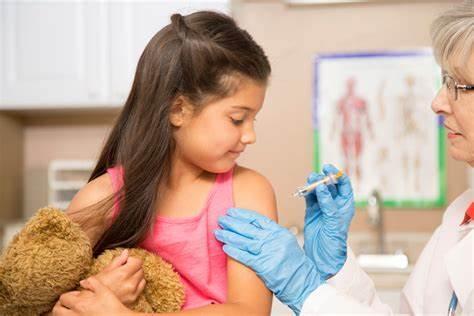
Memories of Summer Camp Should Be Filled with Joy, Not Allergy Symptoms

Santa Monica, CA-
It can be nerve-wracking, as well as exhilarating for kids to go to summer camp for the first time. Anxieties may be greater for children with allergies and asthma who fear an allergic reaction or asthma attack. A little planning goes a long way towards making them feel safe and ready for their adventure.
“Summer camp is often a child’s first big activity away from home – whether it’s a day or overnight camp,” says allergist Dr. Bernard Geller, Allergy & Clinical Immunology Medical Group, “And every kid should have the opportunity to stretch their wings and try something new without worrying about their health. A few precautions can make summer camp a safe and fun experience.”
Everyone and everything should be up-to-date – Before sending your child to camp, communicate with the staff. The camp needs to tell you what level of physical activities will be involved, what the focus of each day will be, and how meals are handled. And you need to convey your expectations to the camp: how do you want your child’s medical routine handled, what does your child need to fully participate in all activities, and how does the camp handle medical emergencies? Do some digging to make sure it’s a good fit all the way around.
Pre-camp prep – Once you and your camper have decided they’ll be off to camp this summer, a visit to the allergist is in order. If your child uses medications, or an epinephrine auto injector for severe allergic reactions, make sure their prescriptions are the appropriate dose for their height and weight, and are up-to-date. Work with your allergist to send the correct supply of needed medications. Double-check expiration dates on existing supplies.
Have a chat before you sing around the campfire – Schedule a meeting with the person responsible for medical care and your child’s counselor well before the first day of camp to make them aware of your child’s medical needs. Have your child attend the meeting too, so they are empowered to keep track of symptoms and triggers.
True, she’s not headed to the wilderness – Even if it’s not a specialty sleepaway camp, most day camps have provisions in place to keep kids with allergies and asthma safe. They welcome discussions about what your child can and cannot eat, and what they need to have on hand in case of a severe allergic reaction, or an asthma attack. Make sure the camp you choose has dealt with allergies and asthma before, knows where the nearest hospital is and how to get there, and when to call 911.
For more information about food allergies and anaphylaxis, visit our website at www.SneezeWheeze.com, or reach us by telephone: (310)828-8534 or by e-mail: FrontOffice@allergyandclinical.com
Dora Afrahim, MPAP, PA-C
Allergy & Clinical Immunology Medical Group
You Might Also Enjoy...


FDA Approves the First Peanut Allergy Treatment

Telehealth: The Advantages of Telemedicine

Four Tips to Help you Stay Calm and Ease Sniffling, Sneezing, & Wheezing this Holiday Season

Keeping Allergies and Asthma at Bay is the Best Gift



